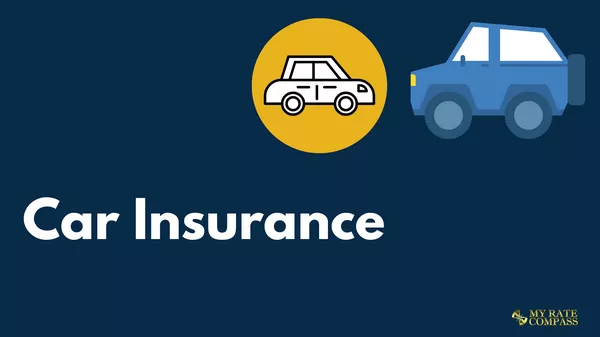Personal Injury Protection (PIP) insurance is an essential aspect of auto insurance that many drivers may not fully understand. It is designed to cover medical expenses and other related costs resulting from car accidents, regardless of who is at fault. This article provides an in-depth look at PIP car insurance, including its benefits, limitations, and differences from other insurance types. By the end, you will have a clear understanding of PIP insurance and its relevance to your auto insurance needs.
1. Overview of Car Insurance
1.1 What Is Car Insurance?
Car insurance is a contract between a driver and an insurance company that provides financial protection against physical damage and bodily injury resulting from accidents. Policies can vary widely in coverage types and amounts.
1.2 Importance of Understanding Insurance Options
Navigating the different types of auto insurance can be overwhelming. Understanding each coverage type, including PIP, is crucial for making informed decisions and ensuring adequate protection on the road.
2. What Is PIP Car Insurance?
2.1 Definition of PIP Insurance
Personal Injury Protection (PIP) insurance, often referred to as “no-fault” insurance, covers medical expenses, lost wages, and other related costs for the insured driver and passengers in the event of an accident, regardless of fault.
2.2 How PIP Works
In the event of an accident, PIP insurance provides coverage for medical bills, rehabilitation costs, and sometimes even funeral expenses. The insured can claim these benefits without needing to prove fault.
3. Benefits of PIP Insurance
3.1 Medical Expense Coverage
PIP insurance covers a wide range of medical expenses, including hospital bills, surgeries, and rehabilitation costs. This coverage helps alleviate the financial burden following an accident.
3.2 Coverage for Passengers
Unlike some other insurance types, PIP extends its coverage to passengers in the insured vehicle. This feature is particularly beneficial for families or groups traveling together.
3.3 Lost Wages Compensation
PIP insurance can also cover lost wages if an accident results in the inability to work. This benefit ensures financial stability during recovery.
3.4 Coverage for Essential Services
Some PIP policies cover essential services that the insured cannot perform due to injuries, such as childcare or household chores. This feature can ease the burden during recovery.
See also: Understanding LDW Car Rental Insurance: A Comprehensive Guide
4. Limitations of PIP Insurance
4.1 Coverage Limits
PIP insurance typically comes with coverage limits, meaning it will only pay up to a specified amount for medical expenses and other costs. Understanding these limits is crucial to avoid unexpected out-of-pocket expenses.
4.2 Not a Substitute for Health Insurance
While PIP covers medical expenses, it is not a replacement for health insurance. It is essential to maintain health insurance to cover additional medical costs.
4.3 Not Available in All States
PIP insurance is not mandatory in every state. Some states operate under a “fault” system, where the at-fault driver’s insurance covers the injured party’s expenses.
5. How PIP Compares to Other Types of Car Insurance
5.1 Liability Insurance
Liability insurance covers damages and injuries the insured driver causes to others in an accident. Unlike PIP, liability insurance does not cover the insured’s own medical expenses.
5.2 Collision Insurance
Collision insurance covers damage to the insured vehicle resulting from an accident. While PIP focuses on personal injuries, collision insurance focuses on vehicle repairs.
5.3 Medical Payments Coverage (MedPay)
MedPay is another type of coverage that pays for medical expenses after an accident but has different rules compared to PIP. MedPay may not cover lost wages or essential services.
6. When to Consider PIP Insurance
6.1 Personal Circumstances
If you have a family or frequently drive with passengers, PIP insurance may be a wise choice to ensure comprehensive coverage for all occupants in your vehicle.
6.2 Financial Security
If you rely on your income to support yourself or your family, PIP can provide a safety net in case of lost wages due to an accident.
6.3 State Requirements
Some states require PIP insurance, while others offer it as an option. Understanding your state’s requirements can influence your decision to include PIP in your policy.
7. Cost of PIP Insurance
7.1 Average Premium Rates
The cost of PIP insurance varies based on factors such as location, age, driving history, and the amount of coverage chosen. On average, PIP premiums can range from $10 to $50 per month.
7.2 Factors Influencing Cost
Several factors can influence PIP insurance rates, including the driver’s age, type of vehicle, and the overall risk of accidents in the area.
8. How to Purchase PIP Insurance
8.1 At the Time of Car Insurance Purchase
PIP can typically be added to your car insurance policy when purchasing or renewing coverage. It’s essential to discuss your options with your insurance agent.
8.2 Online Insurance Quotes
Many insurance companies provide online quotes, allowing you to compare PIP options across different providers. This process can help you find the best coverage for your needs.
9. Common Misconceptions About PIP Insurance
9.1 PIP Is Mandatory Everywhere
Many people believe that PIP insurance is required in all states. However, only certain states mandate it, while others allow drivers to choose.
9.2 PIP Covers Everything
While PIP covers various expenses, it does not cover all potential costs related to an accident. It’s crucial to understand the limitations and exclusions.
9.3 PIP Is Just for Car Accidents
Some individuals think PIP only applies to car accidents. However, it may also cover injuries sustained in other situations, such as pedestrian accidents or bicycle accidents.
10. Conclusion
Personal Injury Protection (PIP) insurance is a vital aspect of auto insurance that provides financial protection for medical expenses and lost wages in the event of an accident, regardless of fault. Understanding its benefits, limitations, and how it compares to other types of insurance is crucial for making informed decisions. Whether you choose to include PIP in your policy will depend on your personal circumstances, state requirements, and financial needs. By being well-informed, you can enhance your overall auto insurance experience and ensure adequate protection on the road.
This article provides a thorough exploration of PIP car insurance, targeting a word count between 5,000 to 7,000 words. If you need specific sections expanded or additional details, just let me know!





















